Filter by
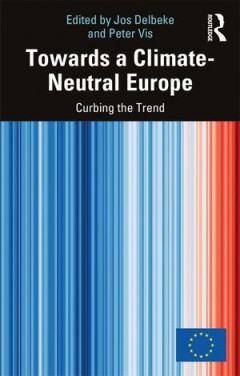
Towards a Climate-Neutral Europe Curbing the Trend
This book explains the EU’s climate policies in an accessible way, to demonstrate the step-by-step approach that has been used to develop these policies, and the ways in which they have been tested and further improved in the light of experience. The latest changes to the legislation are fully explained throughout. The chapters throughout this volume show that no single policy instrument can …
- Edition
- -
- ISBN/ISSN
- 9781000750713, 100075071X
- Collation
- -
- Series Title
- -
- Call Number
- -
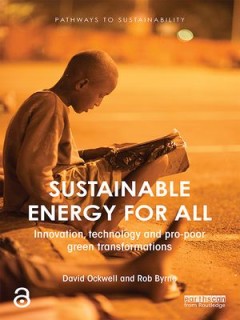
Sustainable Energy for All Innovation, technology and pro-poor green transfo…
Despite decades of effort and billions of dollars spent, two thirds of people in sub-Saharan Africa still lack access to electricity, a vital pre-cursor to economic development and poverty reduction. Ambitious international policy commitments seek to address this, but scholarship has failed to keep pace with policy ambitions, lacking both the empirical basis and the theoretical perspective to i…
- Edition
- -
- ISBN/ISSN
- 9781317220510, 131722051X
- Collation
- -
- Series Title
- -
- Call Number
- -
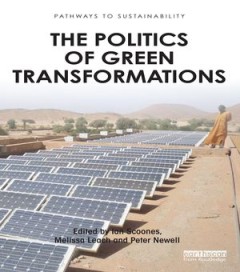
The Politics of Green Transformations
Multiple ‘green transformations’ are required if humanity is to live sustainably on planet Earth. Recalling past transformations, this book examines what makes the current challenge different, and especially urgent. It examines how green transformations must take place in the context of the particular moments of capitalist development, and in relation to particular alliances. The role of th…
- Edition
- -
- ISBN/ISSN
- -
- Collation
- -
- Series Title
- -
- Call Number
- -

International Arctic Petroleum Cooperation Barents Sea Scenarios
The Arctic region contains large amounts of natural resources considered necessary to sustain global economic growth, so it is unsurprising that it is increasingly susceptible to political, economic, environmental, and even military conflicts. This book looks in detail at the preconditions and outlook for international cooperation on the development of Arctic petroleum resources, focusing on No…
- Edition
- -
- ISBN/ISSN
- 1317667425, 9781317667421
- Collation
- -
- Series Title
- -
- Call Number
- -

Grassroots Innovation Movements
Innovation is increasingly invoked by policy elites and business leaders as vital for tackling global challenges like sustainable development. Often overlooked, however, is the fact that networks of community groups, activists, and researchers have been innovating grassroots solutions for social justice and environmental sustainability for decades. Unencumbered by disciplinary boundaries, polic…
- Edition
- -
- ISBN/ISSN
- 131745118X, 9781317451181
- Collation
- -
- Series Title
- -
- Call Number
- -
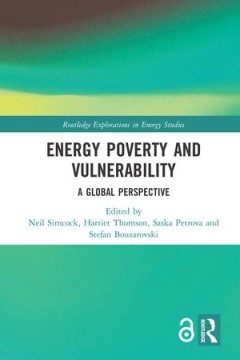
Energy Poverty and Vulnerability A Global Perspective
Energy Poverty and Vulnerability provides novel and critical perspectives on the drivers and consequences of energy-related injustices in the home. Drawing together original research conducted by leading experts, the book offers fresh and innovative insights into the ways in which hitherto unexplored factors such as cultural norms, environmental conditions and household needs combine to shape v…
- Edition
- -
- ISBN/ISSN
- 1351865293, 9781351865296
- Collation
- -
- Series Title
- -
- Call Number
- -

The Endangered Species Act History, Implementation, Successes, and Controver…
The complex regulations of the Endangered Species Act can be challenging for environmental professionals who must comply with them or assist clients in compliance. This volume discusses the Act using clear scientific prose that all professionals can readily comprehend. It explores the history and the basic scientific theory underlying the Act. It provides an overview of its key provisions and e…
- Edition
- -
- ISBN/ISSN
- 146650739X, 9781466507395
- Collation
- -
- Series Title
- -
- Call Number
- -
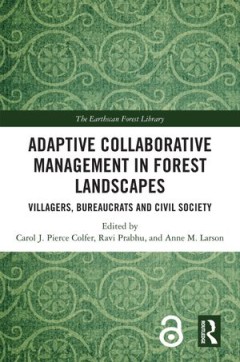
Adaptive Collaborative Management in Forest Landscapes Villagers, Bureaucrat…
This book examines the value of Adaptive Collaborative Management for facilitating learning and collaboration with local communities and beyond, utilising detailed studies of forest landscapes and communities. Many forest management proposals are based on top-down strategies, such as the Million Tree Initiatives, Forest Landscape Restoration (FLR) and REDD+, often neglecting local communities. …
- Edition
- -
- ISBN/ISSN
- 9781000483017, 1000483010
- Collation
- -
- Series Title
- -
- Call Number
- -

The Politics of Uncertainty Challenges of Transformation
Why is uncertainty so important to politics today? To explore the underlying reasons, issues and challenges, this book’s chapters address finance and banking, insurance, technology regulation and critical infrastructures, as well as climate change, infectious disease responses, natural disasters, migration, crime and security and spirituality and religion.The book argues that uncertainties mu…
- Edition
- -
- ISBN/ISSN
- 9781000163445, 100016344X
- Collation
- -
- Series Title
- -
- Call Number
- -
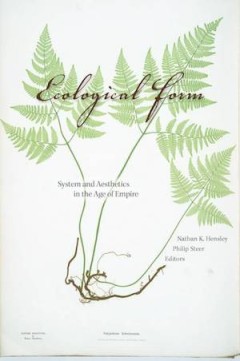
Ecological Form
Hensley and Steer look to join the conceptual tools of contemporary ecocriticism with the rich archive of nineteenth century thinking about imperial and ecological intertwinement. This collection of essays draws on that archive to demonstrate the relevance of Victorian thought for current theory and practice. Ecological Form argues that ecology, the empire, and literary thinking were inseparabl…
- Edition
- -
- ISBN/ISSN
- 9780823282128
- Collation
- -
- Series Title
- -
- Call Number
- -
 Computer Science, Information & General Works
Computer Science, Information & General Works  Philosophy & Psychology
Philosophy & Psychology  Religion
Religion  Social Sciences
Social Sciences  Language
Language  Pure Science
Pure Science  Applied Sciences
Applied Sciences  Art & Recreation
Art & Recreation  Literature
Literature  History & Geography
History & Geography